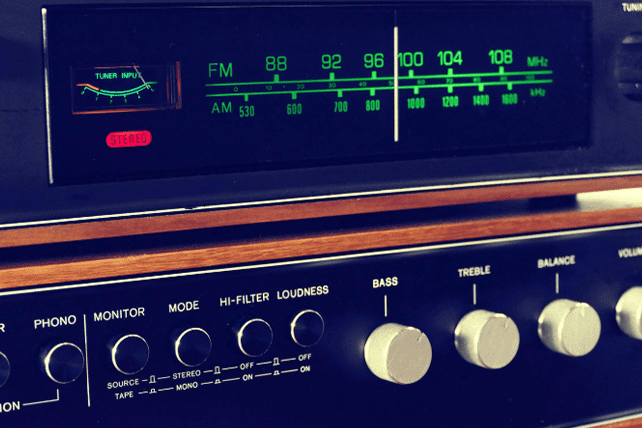(RNS) — Faith Radio president Scott Beigle’s quest for Christian radio started with 1070AM, a former CNN news station in Tallahassee, Florida.
After moving from northern Alabama to the Florida Panhandle with his wife and three kids, Beigle, who is Baptist, noted the lack of Christian radio stations in the area and felt compelled to change that. Months later, on Oct. 6, 1997, that calling became a reality as the Faith Radio Network’s blend of evangelical Christian music and teachings hit the airwaves on 1070AM.
Nearly three decades later, the nonprofit network has grown to include 12 other Christian radio stations. Their flagship station, 1070AM, has been converted to a Spanish-language Christian station to meet the needs of Latino Christians in the region — “there was no one doing that in our area,” Beigle told RNS.
But in recent years, the future of 1070AM has become uncertain, even as Beigle said its message has become more vital.

Scott Beigle. (Photo courtesy of Faith Radio)
“A lot of them, especially now with the immigration and all, they’re scared,” Beigle said of 1070AM’s Spanish-speaking listeners. “And we understand they’re scared to go out — but they’re not scared to listen, to turn that AM radio on to hear their language, and to hear how God can change their life.”
In recent decades, AM radio, known especially for talk radio, has faded in popularity with the arrival of the clearer but more limited reach of FM signals, in addition to streaming and satellite radio. A 2025 survey from Barna Group and the National Religious Broadcasters found listeners access Christian radio from multiple sources, with 68% saying they listen to FM stations, 57% a website or app, 38% satellite radio and 37% AM stations.
While AM stations remain a smaller but consequential part of America’s radio landscape — the National Association of Broadcasters reports 80 million Americans still listen to AM radio each month on over 4,000 AM stations — AM radio now faces an existential threat: removal from cars. Citing dwindling audiences and technological clashes with electric vehicle equipment, automakers such as Ford, Volkswagen, Tesla and BMW have begun phasing out AM radio in some newer vehicles.
A diverse coalition of stakeholders linked with conservative talk shows, foreign language stations and religious broadcasters is teaming up in the halls of Congress, advocating to salvage AM radio’s spot on the nation’s dashboards, at least temporarily.

(Photo by Jonathan Farber/Unsplash/Creative Commons)
For many Christian stations, the legislative effort has spiritual stakes.
“We’re in the hope business — to see their lives changed,” Beigle said.
The AM Radio for Every Vehicle Act is the latest iteration of a bill that would require United States automakers to include AM receivers in new vehicles for the next 10 years. Though the bill has already gained broad bipartisan support — with at least 218 co-sponsors of the House version and 61 of the Senate — the House version is still in committee, while the vote on the Senate version has yet to be scheduled.
“We have more than enough votes to pass it in the House right now, but to make it a priority in a moment where there’s just a whole lot of four- and five-alarm fires you have to put out, it’s hard to do something that’s more of a long-term concern,” said Mike Farris, legal counsel for the National Religious Broadcasters, a multimedia association founded by evangelical Christian broadcasters in the 1940s. The NRB, which has more than 120 AM stations among its members, has been one of several groups advocating for the legislation.

